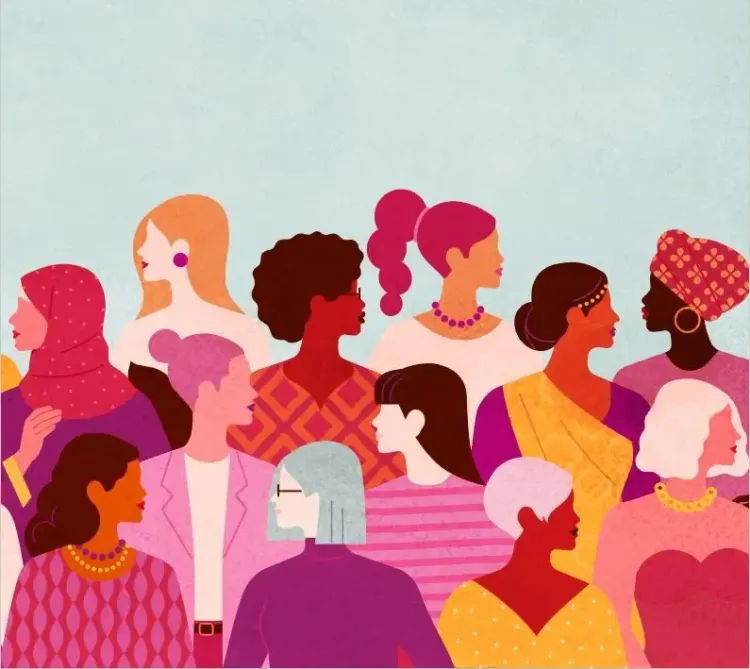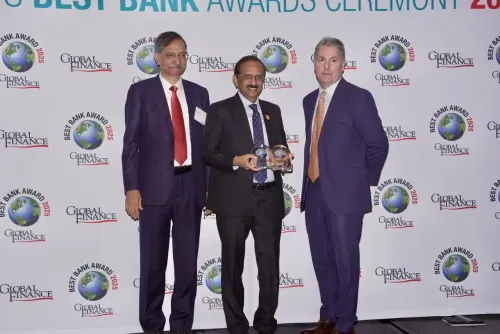Addressing 9 Health Issues Could Add 2.5 Healthy Days to Women's Lives: WEF Report

Synopsis
Key Takeaways
- Targeting nine health conditions can improve women's health.
- Women experience 25% more poor health years than men.
- Addressing these issues could unlock $400 billion in GDP by 2040.
- Only 10% of clinical trials focus on sex-specific data.
- New tools like WHIT aim to track and improve women's health.
New Delhi, Jan 21 (NationPress) Focusing on nine significant health issues could play a vital role in improving women’s health, potentially adding 2.5 healthy days to each woman's life annually, as per new findings unveiled at the ongoing World Economic Forum (WEF) on Tuesday.
The latest report reveals that women experience a quarter more of their lives in poor health compared to men. Concentrating on these nine conditions, categorized into lifespan and healthspan issues, is essential for enhancing their overall health.
“The nine conditions are classified into lifespan conditions, which refer to the total years lived (including maternal hypertensive disorders, postpartum hemorrhage, ischemic heart disease, cervical cancer, and breast cancer), and health span conditions, which pertain to how many years are lived healthily (including endometriosis, menopause, migraine, and premenstrual syndrome),” stated the report, created in partnership with the McKinsey Health Institute (MHI).
The report highlighted that targeted efforts regarding these nine crucial health conditions could reduce the global disease burden by 27 million disability-adjusted life years and add the equivalent of 2.5 healthy days to each woman's life annually.
Moreover, it underscored the substantial economic benefits of investing in women’s health. By addressing these nine conditions, there is potential to transform countless lives and unlock $400 billion in global GDP by 2040, according to the report.
“Monitoring progress is critical for fostering meaningful change and developing effective healthcare strategies tailored for women,” remarked Shyam Bishen, Head of the Centre for Health and Healthcare and member of the Executive Committee at WEF.
“Despite the potential to gain 2.5 additional healthy days in women's lives, they are frequently neglected due to inadequate sex-specific research -- only 10 percent of clinical trials for ischemic heart disease and migraine provide such data,” she further added.
As part of this initiative, the Forum, in collaboration with MHI, has launched the Women’s Health Impact Tracking (WHIT) -- a publicly available tool aimed at measuring and addressing global health disparities and promoting fair, scalable solutions worldwide.
This platform provides data-driven insights on health outcomes and economic opportunities, highlighting the urgent need for investment in three underfunded areas: menopause, premenstrual syndrome, and migraine, which together represent a $315 billion GDP opportunity.
There are notable global disparities in women’s health outcomes, influenced by shortcomings in data collection, research funding, clinical practice guidelines, and healthcare delivery systems. Notably, while 54 percent of the women's health burden occurs in low- and middle-income countries, only 23 percent of clinical trials focus on these regions.
The report emphasized that enhancing data accuracy, boosting research funding for women-specific conditions, and improving sex-based clinical guidelines could greatly diminish these disparities. “It is time to count women, study women, care for women, invest in women, and include all women,” declared Lucy Perez, Senior Partner at McKinsey & Company and Co-leader of the McKinsey Health Institute.
“Addressing these nine conditions can not only enhance the lives of millions of women and unlock $400 billion of economic growth -- but it also provides a roadmap for scaling and tracking progress to bridge the broader women’s health gap,” Perez added.
The WEF Annual Meeting 2025 is taking place in Davos-Klosters, Switzerland, from January 20 to 24. Global leaders are discussing various topics under the theme 'Collaboration for the Intelligent Age'.









